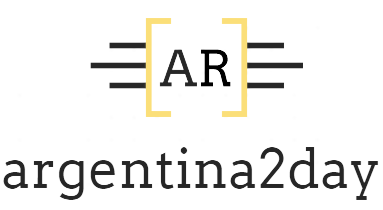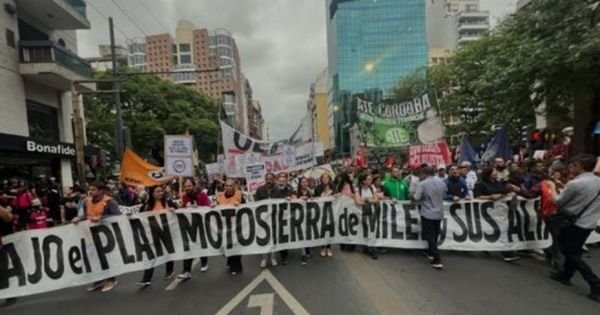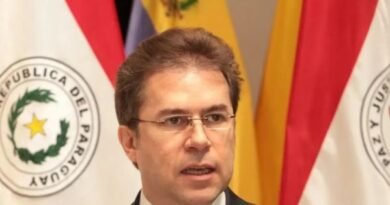Six protesters arrested in Argentine city of Córdoba
[ad_1]
Six protesters arrested in Argentine city of Córdoba
Police launched teargas and fired rubber bullets against the cacerolazo
At least six people were arrested Thursday by law enforcement officers in the Argentine city of Córdoba after clashes with protesters downtown as they marched against President Javier Milei’s decree while other pot-banging demonstrations were staged in Buenos Aires and other cities nationwide such as Mar del Plata, Bariloche, Rosario, Luján, Tandil, Puerto Madryn, and Junín.
Police launched teargas and fired rubber bullets against the cacerolazo in the streets. Among those detained were journalist Rodrigo Savoretti and his brother Agustín Savoretti, it was reported.
In Buenos Aires, the protesters once again gathered outside Congress, which had strong police guard.
They are embraced and in love with the model that impoverishes them, but they are not the majority of Argentines, President Milei said about the protests against the DNU. He also suggested the protesters may be people who suffer from Stockholm syndrome.
But they are not the majority of Argentines, Milei also said in a radio interview.
Regarding his reforms, Milei warned that there were more coming up: “We are going to call extraordinary (National Congress sessions during the summer recess) and send a bill for the modification of the State.”
Milei also assured that buying dollars on the black market was not illegal. Today in the free market you can buy all the dollars you want and no one is going to chase you. You go and buy what you want. Now you can agree on contracts in foreign currencies and they have to be fulfilled that way. Do you realize the shock of freedom that all this implies?
The head of state also pledged to remove the exchange rate controls once we finish cleaning up the Central Bank and the entire monetary issue.
These restrictions generate an excess of demand in the foreign exchange market that has as its counterpart an excess of supply in the rest of the economy. This implies that the price of bonds are low and therefore the interest rate jumps and it implies that you have an excess of supply in the goods market and activity falls, for some reason, we have a GDP per capita that is 15% lower than what we had in 2011, the economist also explained.
Meanwhile, Foreign Minister Diana Mondino insisted contracts in the South American country may be drafted in any designated currency, from cryptocurrencies to kilos of steer (veal) or liters of milk. “We ratify and confirm that in Argentina contracts can be agreed in Bitcoin,” said Mondino, also an economist by trade like Milei.
[ad_2]
Source link




